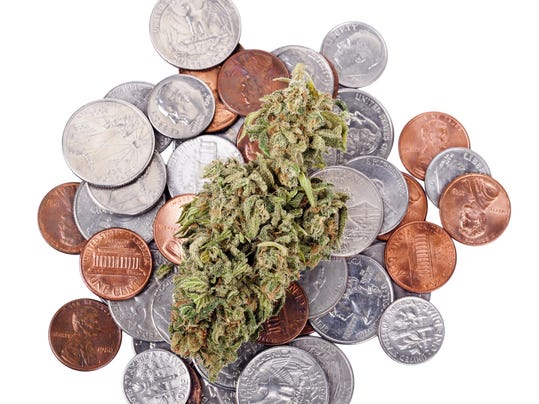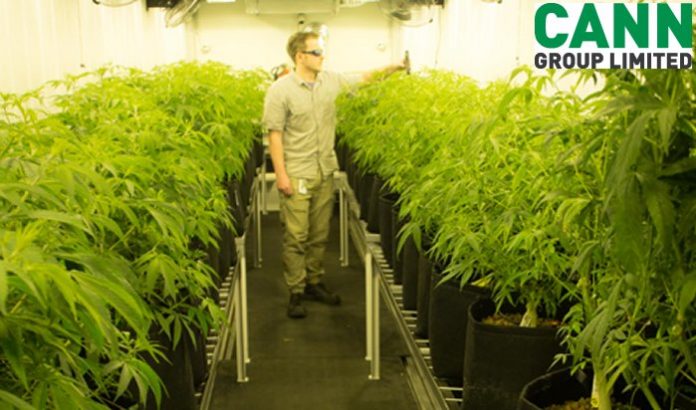By Tom Angell
Source:
marijuanamoment.net

Federal authorities would no longer be able to punish banks that work with businesses that grow, process and sell hemp products under an amendment up for consideration in the U.S. Senate this week.
The measure, submitted on Tuesday by Sen. Rand Paul (R-KY), seeks to include the protections for hemp banking in the large-scale Farm Bill, which is currently on the Senate floor. The legislation, as currently drafted, already includes provisions that would legalize the cultivation of the non-psychoactive marijuana cousin.
“American consumers are buying hemp but thanks to heavy-handed regulation, the only option at scale is importing hemp from foreign producers,” he said in a Senate floor speech on Wednesday. “Enough is enough.”
It is unclear if Paul’s amendment will receive a floor vote.
See the full text of the new hemp banking amendment below:
______
SA 3198. Mr. PAUL submitted an amendment intended to be proposed by
him to the bill H.R. 2, to provide for the reform and continuation of
agricultural and other programs of the Department of Agriculture
through fiscal year 2023, and for other purposes; which was ordered to
lie on the table; as follows:
At the end of subtitle F of title XI, add the following:
SEC. 11618. SECURE AND FAIR BANKING ENFORCEMENT.
(a) Safe Harbor for Depository Institutions.--A Federal
banking regulator may not--
(1) terminate or limit the deposit insurance or share
insurance of a depository institution under the Federal
Deposit Insurance Act (12 U.S.C. 1811 et seq.) or the Federal
Credit Union Act (12 U.S.C. 1751 et seq.) solely because the
depository institution provides or has provided financial
services to a hemp-related legitimate business;
(2) prohibit, penalize, or otherwise discourage a
depository institution from providing financial services to a
hemp-related legitimate business or to a State or Indian
tribe that exercises jurisdiction over hemp-related
legitimate businesses;
(3) recommend, incentivize, or encourage a depository
institution not to offer financial services to the owner,
operator, or an individual that is an account holder of a
hemp-related legitimate business, or downgrade or cancel
financial services offered to an account holder of a hemp-
related legitimate business solely because--
(A) the account holder later becomes a hemp-related
legitimate business; or
(B) the depository institution was not aware that the
account holder is the owner or operator of a hemp-related
legitimate business; and
(4) take any adverse or corrective supervisory action on a
loan to an owner or operator of--
(A) a hemp-related legitimate business solely because the
business owner or operator is a hemp-related business without
express statutory authority, as in effect on the day before
the date of enactment of this Act; or
(B) real estate or equipment that is leased or sold to a
hemp-related legitimate business solely because the owner or
operator of the real estate or equipment leased or sold the
equipment or real estate to a hemp-related legitimate
business.
(b) Protections Under Federal Law.--
(1) In general.--In a State, political subdivision of a
State, or Indian country that allows the cultivation,
production, manufacturing, transportation, display,
dispensing, distribution, sale, or purchase of hemp pursuant
to a law (including regulations) of the State, political
subdivision of the State, or the Indian tribe that has
jurisdiction over the Indian country, as applicable, a
depository institution and the officers, director, and
employees of the depository institution that provides
financial services to a hemp-related legitimate business may
not be held liable pursuant to any Federal law (including
regulations)--
(A) solely for providing the financial services pursuant to
the law (including regulations) of the State, political
subdivision of the State, or Indian tribe; or
(B) for further investing any income derived from the
financial services.
(2) Forfeiture.--A depository institution that has a legal
interest in the collateral for a loan made to an owner or
operator of a hemp-related legitimate business, or to an
owner or operator of real estate or equipment that is leased
or sold to a hemp-related legitimate business, shall not be
subject to criminal, civil, or administrative forfeiture of
that legal interest pursuant to any Federal law for providing
the loan or other financial services solely because the
collateral is owned by a hemp-related business.
(c) Rule of Construction.--Nothing in this section shall
require a depository institution to provide financial
services to a hemp-related legitimate business.
(d) Requirements for Filing Suspicious Activity Reports.--
Section 5318(g) of title 31, United States Code, is amended
by adding at the end the following:
``(5) Requirements for hemp-related businesses.--
``(A) Definitions.--In this paragraph--
``(i) the term `financial service' means a financial
product or service, as defined in section 1002 of the Dodd-
Frank Wall Street Reform and Consumer Protection Act (12
U.S.C. 5481);
``(ii) the term `hemp' has the meaning given the term in
section 10111 of the Agriculture and Nutrition Act of 2018;
``(iii) the term `hemp-related legitimate business' has the
meaning given the term in section 11618(e) of the Agriculture
and Nutrition Act of 2018;
``(iv) the term `Indian country' has the meaning given the
term in section 1151 of title 18; and
``(v) the term `Indian tribe' has the meaning given the
term in section 102 of the Federally Recognized Indian Tribe
List Act of 1994 (25 U.S.C. 479a).
``(B) Reporting of suspicious transactions.--A financial
institution or any director, officer, employee, or agent of a
financial institution that reports a suspicious activity
related to a transaction by a hemp-related legitimate
business shall comply with appropriate guidance issued by the
Financial Crimes Enforcement Network. The Secretary shall
ensure that the guidance is consistent with the purpose and
intent of this paragraph and does not inhibit the provision
of financial services to a hemp-related legitimate business
in a State, political subdivision of a State, or Indian
country that has allowed the cultivation, production,
manufacturing, transportation, display, dispensing,
distribution, sale, or purchase of hemp, or any other conduct
relating to hemp, pursuant to law or regulation of the State,
the political subdivision of the State, or Indian tribe that
has jurisdiction over the Indian country.''.
(e) Definitions.--In this section:
(1) Company.--The term ``company'' means a partnership,
corporation, association, (incorporated or unincorporated),
trust, estate, cooperative organization, State, or any other
entity.
(2) Depository institution.--The term ``depository
institution'' means--
(A) a depository institution as defined in section 3(c) of
the Federal Deposit Insurance Act (12 U.S.C. 1813(c));
(B) a Federal credit union as defined in section 101 of the
Federal Credit Union Act (12 U.S.C. 1752); or
(C) a State credit union as defined in section 101 of the
Federal Credit Union Act (12 U.S.C. 1752).
(3) Federal banking regulator.--The term ``Federal banking
regulator'' means each of the Board of Governors of the
Federal Reserve System, the Bureau of Consumer Financial
Protection, the Federal Deposit Insurance Corporation, the
Office of the Comptroller of the Currency, the National
Credit Union Administration, or any Federal agency or
department that regulates banking or financial services, as
determined by the Secretary of the Treasury.
(4) Financial service.--The term ``financial service''
means a financial product or service, as defined in section
1002 of the Dodd-Frank Wall Street Reform and Consumer
Protection Act (12 U.S.C. 5481).
(5) Hemp.--The term ``hemp'' has the meaning given the term
in section 10111.
(6) Hemp product.--The term ``hemp product'' means any
article which contains hemp, including an article which is a
concentrate, an edible, a tincture, a hemp-infused product,
or a topical.
(7) Hemp-related legitimate business.--The term ``hemp-
related legitimate business'' means a manufacturer, producer,
or any person or company that--
(A) engages in any activity described in subparagraph (B)
pursuant to a law established by a State or a political
subdivision of a State; and
(B)(i) participates in any business or organized activity
that involves handling hemp or hemp products, including
cultivating, producing, manufacturing, selling, transporting,
displaying, dispensing, distributing, or purchasing hemp or
hemp products; or
(ii) provides--
(I) any financial service, including retirement plans or
exchange traded funds, relating to hemp; or
(II) any business services, including the sale or lease of
real or any other property, legal or other licensed services,
or any other ancillary service, relating to hemp.
(8) Indian country.--The term ``Indian country'' has the
meaning given the term in section 1151 of title 18, United
States Code.
(9) Indian tribe.--The term ``Indian tribe'' has the
meaning given the term in section 102 of the Federally
Recognized Indian Tribe List Act of 1994 (25 U.S.C. 479a).
(10) Manufacturer.--The term ``manufacturer'' means a
person or company who manufactures, compounds, converts,
processes, prepares, or packages hemp or hemp products.
(11) Producer.--The term ``producer'' means a person or
company who plants, cultivates, harvests, or in any way
facilitates the natural growth of hemp.
(12) State.--The term ``State'' means each of the several
States, the District of Columbia, Puerto Rico, any territory
or possession of the United States.


